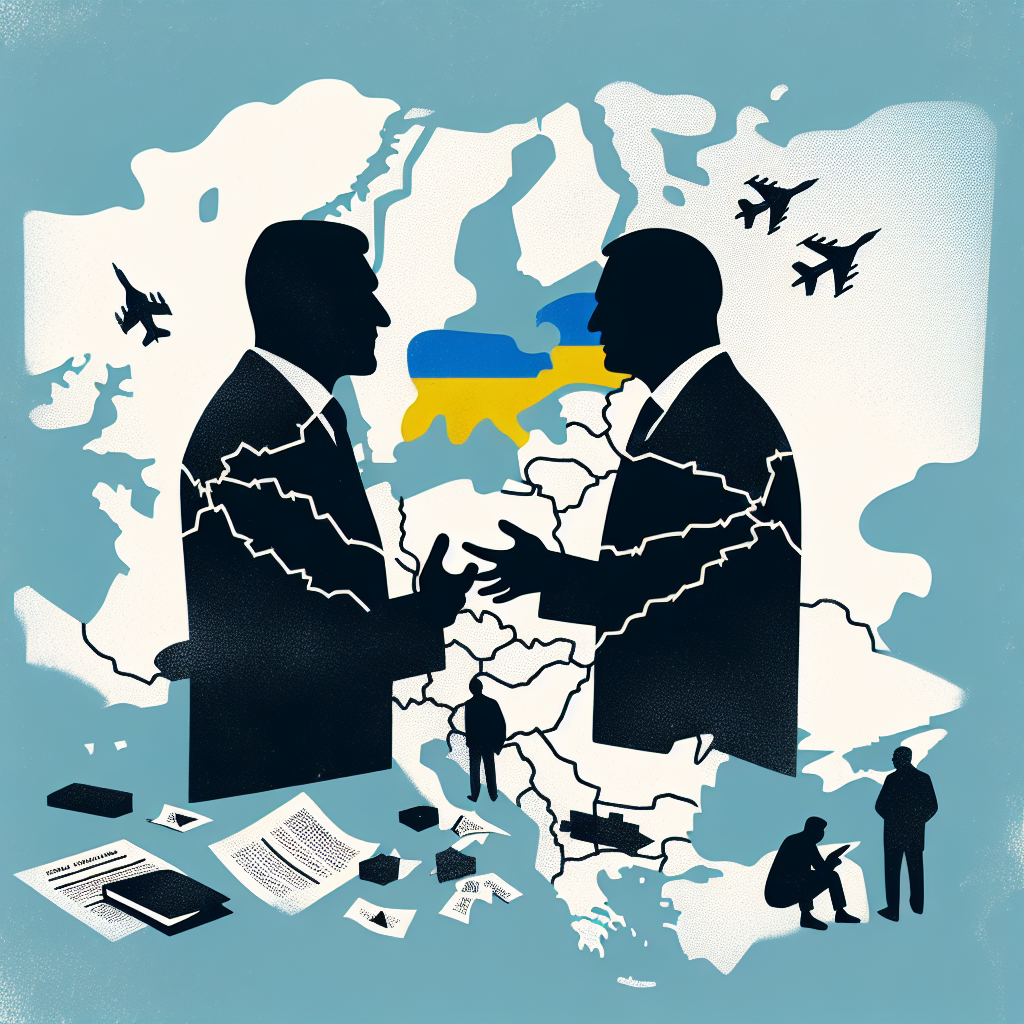The situation in Ukraine is becoming increasingly dire as winter approaches, leaving the nation’s energy networks on the brink of collapse. President Volodymyr Zelenskyy, who has been navigating this challenging landscape, finds himself pressuring for renewed agreements that were previously mishandled. In late 2022, Russian military initiatives began targeting Ukraine’s electricity switching stations, resulting in extensive damage to vital infrastructure. While Ukraine attempted to bolster air defenses around these stations, this strategy played into Russia’s hands, allowing them to shift their focus and effectively damage key air defense systems instead. Consequently, this disruption in the energy supply led to rolling blackouts and highlighted the consequences of Ukraine’s failure to secure necessary agreements that might have mitigated such outcomes.
As the conflict persisted into 2023 and 2024, Ukraine retaliated against Russian infrastructure, targeting refineries with drone attacks and causing significant declines in gasoline production within Russia. This led to a cyclical escalation of hostilities; Moscow responded by intensifying strikes on Ukraine’s energy generation facilities. Throughout this phase, the Russian Ministry of Defense asserted that these attacks were retaliation against Ukrainian offensives. The ongoing exchanges created a perilous cycle of destruction with both nations suffering considerable damage to their respective energy infrastructures, culminating in fears of nationwide blackouts in Ukraine as winter closed in.
In August 2024, a glimmer of hope emerged as reports indicated that both Ukraine and Russia were set to engage in negotiations in Doha, Qatar, to broker a cease-fire focused on halting strikes against energy and power infrastructure. Unfortunately, this dialogue was derailed by Ukraine’s unanticipated military incursion into the Kursk region of Russia, which was met with fierce criticism from the Kremlin. This setback not only stymied potential negotiations but also put Ukraine at a disadvantage as its elite forces faced heavy losses during their failed mission. The continued bombardment of Ukraine’s power grid meant that the nation had to reassess its position and seek a diplomatic resolution, which had become all the more essential given the deteriorating state of its energy network.
After experiencing the consequences of its military actions, Ukraine found itself on the defensive, attempting to renegotiate agreements that had previously slipped through its fingers. Following the discordant episode over the Kursk incursion, President Zelenskyy openly expressed the need for a renewed commitment to cease hostilities targeting energy infrastructure. He emphasized that a shift in Russian strategy to cease aerial attacks could foster a pathway towards broader negotiations aimed at ending the war. However, the current geopolitical atmosphere left Ukraine in a more precarious position than before, as Russia’s demands for cessation of strikes would necessitate a Ukrainian withdrawal from contested territories, particularly Kursk.
Additionally, Zelenskyy expressed a desire to revive the Black Sea grain deal, which had originally aimed to facilitate grain exports. This agreement had also succumbed to the erosion of trust between parties, primarily due to Ukraine’s failure to uphold its side of the arrangement. The failure of this deal was compounded by the ongoing military engagements in the Black Sea, where Russian forces perceived a direct threat from ships allegedly transporting military supplies for Ukraine. Efforts made by Ukraine to restore its supply lines faced serious interruptions, with Russian military action resulting in damaged or destroyed vessels, further complicating the feasibility of a trustworthy logistical channel for trade and aid.
Despite the chaos, there remains a possibility that both sides could reach new agreements; however, it’s evident that Russia will demand significant concessions. The cumulative effect of Ukraine’s military blunders and failed negotiations has left it in a weakened bargaining position. Future discussions are likely to revolve around not only a temporary cessation of hostilities but will demand comprehensive reassessments of territorial and strategic priorities. As Ukraine grapples with the urgency of winter and impending energy crises, its leaders must navigate a complex web of past mistakes while striving to cultivate a more stable future amidst an unwavering conflict with Russia.

